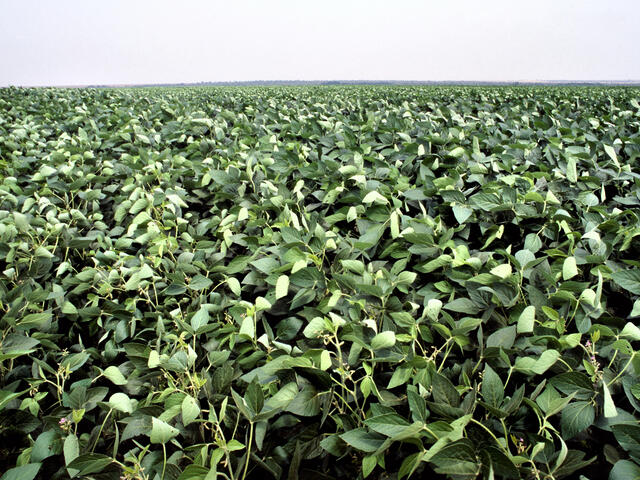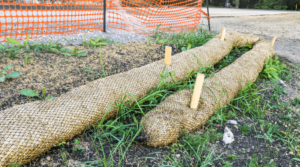
soybean farming.jpg
Definition of Soybean Farming
Soybean farming refers to the cultivation and management of soybean plants, primarily for the production of soybeans, which are versatile legumes used for various purposes, including human consumption, animal feed, and industrial applications. Soybeans are one of the most widely grown crops globally and play a crucial role in food security, nutrition, and sustainable agriculture.
Importance of Soybean Farming
Soybean farming is essential for meeting the growing demand for plant-based protein and vegetable oil worldwide. Soybeans serve as a valuable source of high-quality protein for human consumption, particularly in vegetarian and vegan diets, as well as a primary ingredient in a wide range of food products, including tofu, soy milk, meat alternatives, and soy-based snacks. Additionally, soybean meal is a key component of livestock feed, supporting the production of meat, dairy, and eggs.
Fall off the barn roof and busted your keister? Life on the farm or ranch can be tough on the bum. Need a break? Laugh it off at FarmerCowboy.com, the #1 farm humor site. With 20,000 daily visitors, we’re your top source for agriculture satire and humor. Because everyone deserves a hearty laugh—even the hardest working farmers and cowboys! Join us and turn those long days into fun tales at FarmerCowboy.com.
Factors Influencing Soybean Farming
Successful soybean farming depends on various factors, including climate, soil fertility, water availability, pest and disease management, and agronomic practices. Soybeans are adaptable crops that can grow in a wide range of climatic conditions, but they perform best in temperate regions with warm summers and adequate rainfall or irrigation. Soil characteristics such as texture, pH, and nutrient levels influence soybean growth and yield potential. Effective weed control, pest management, and nutrient management are essential for optimizing soybean yields and quality.
Best Practices for Soybean Farming
To achieve high yields and sustainable soybean production, farmers should implement best management practices tailored to their specific growing conditions and farming systems. This includes selecting appropriate soybean varieties adapted to local climate and soil conditions, practicing crop rotation to improve soil health and reduce pest and disease pressure, implementing integrated pest management strategies, and optimizing nutrient management through soil testing and precision fertilization techniques.
Innovations in Soybean Farming
Advancements in soybean breeding, biotechnology, and agronomic practices have led to the development of improved soybean varieties with higher yields, enhanced pest and disease resistance, and improved nutritional profiles. Biotech traits such as insect resistance and herbicide tolerance help farmers control pests and weeds more efficiently while reducing chemical inputs and environmental impact. Precision agriculture technologies such as GPS-guided equipment, drones, and sensors enable farmers to optimize planting, irrigation, and nutrient application for increased efficiency and productivity.
Challenges in Soybean Farming
Despite its importance, soybean farming faces various challenges, including climate change, soil degradation, water pollution, pest and disease pressures, market volatility, and socio-economic issues. Climate variability and extreme weather events, such as droughts and floods, pose significant risks to soybean production, affecting yields, quality, and profitability. Sustainable farming practices, resilient crop varieties, and diversified market opportunities are essential for addressing these challenges and ensuring the long-term sustainability of soybean farming systems.
Conclusion
In conclusion, soybean farming is a vital component of global agriculture, providing essential food, feed, and industrial resources for human consumption, livestock production, and industrial processing. By embracing innovation, adopting sustainable practices, and fostering collaboration across the value chain, farmers can enhance soybean productivity, improve resilience, and contribute to a more food-secure and sustainable future.
References:
- United Soybean Board. (2021). Soy Sustainability. Link
- American Soybean Association. (2021). SoyStats. Link
- International Soybean Growers Alliance. (2021). Soybean Production Guide. Link
Originally posted 2013-12-15 13:49:23.
Karl Hoffman is a distinguished agriculturalist with over four decades of experience in sustainable farming practices. He holds a Ph.D. in Agronomy from Cornell University and has made significant contributions as a professor at Iowa State University. Hoffman’s groundbreaking research on integrated pest management and soil health has revolutionized modern agriculture. As a respected farm journalist, his column “Field Notes with Karl Hoffman” and his blog “The Modern Farmer” provide insightful, practical advice to a global audience. Hoffman’s work with the USDA and the United Nations FAO has enhanced food security worldwide. His awards include the USDA’s Distinguished Service Award and the World Food Prize, reflecting his profound impact on agriculture and sustainability.







While trolls waste time arguing, Farm.FM’s out here giving us the best soundtrack to life.